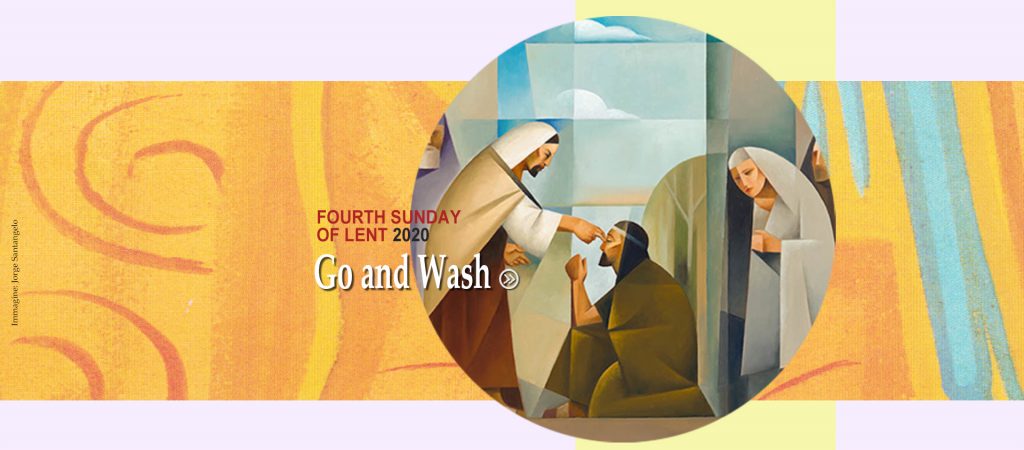Go and Wash
As he walked along, Jesus saw a man blind from birth. His disciples asked him, “Rabbi, who sinned, this man or his parents, that he was born blind?” Jesus answered, “Neither this man nor his parents sinned; it is so that the works of God might be made visible through him. We have to do the works of the One who sent me while it is day; night is coming when no one can work. As long as I am in the world, I am the light of the world.” When he had said this, he spat on the ground, made mud with the saliva and spread the mud on the man’s eyes, saying to him, “Go, wash in the pool of Siloam” (which means Sent). The man went and washed and came back able to see. His neighbors and those who had seen him earlier as a beggar asked, “Isn’t this the one who used to sit and beg?” Some said, “It is,” but others said, “No, he just looks like him.” The man said, “I am he.” (Jn 9:1-9)
Soil and saliva; mud and speech. A new act of creation takes place on the edge of the pool of Siloam. Here too, like in the beginning, soil “pasted” with the Word creates life: a new person is born. When a child is born, it is said that the infant “came into the light,” identifying light with life because if the first is missing, the second cannot blossom. The man born blind is a symbol of those people who do not welcome the liberating power of Jesus, the Word of the Father, and thus remain locked in the darkness of sin. If these individuals allow the Word of God to touch and “soil” them, then they start to live as free people.
The Pool of Your Mercy
Thank you, Lord,
because you want life and joy for me.
Thank you because you are always aware of me.
When I am blinded by my sins,
you look at me with compassion
and lay your hand on me.
Thank you for continually immersing me
in the pool of your mercy
and for restoring me to a life of freedom.
Amen.
Taken from the book Il Vangelo si fa strada by Roberta Vinerba, FSP Editions 2019

